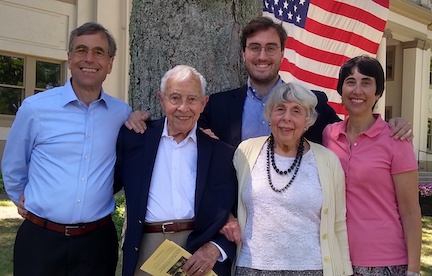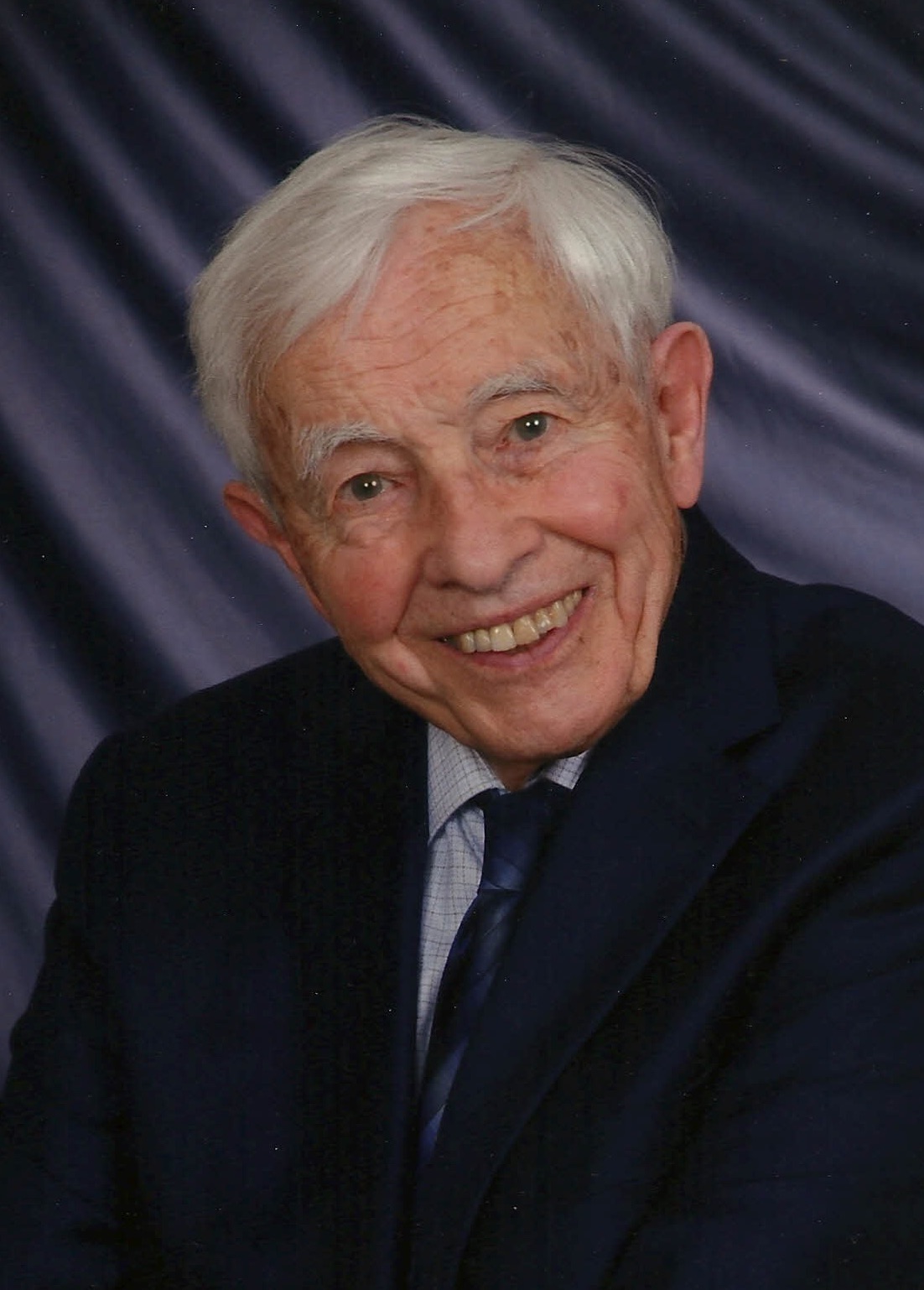By Alycia Wilson
A professor of philosophy for most of his life, David Scarrow (ΦBK, Duke University, 1949) developed a philosophy of his own: always be an educator in one way or another. The impact of his philosophy notably can be traced in the three generations of Scarrow scholars he influenced.
Membership in Phi Beta Kappa is a shared attribute known all too well among his brother Howard, his daughter Susan, his son Robert, and his grandson Sam.
While perusing through old documents, David came across his transcript from Duke University and reminisced about his trajectory toward a degree in philosophy. He recalled these years fondly, remembering the many composition and writing courses he took, as well as the pair of literature courses. He also recounts a “wonderful course on the history of the Bible,” a number of philosophy courses including that of ancient and medieval philosophy, two years of French, and a year of German.
Taking advantage of a varied curriculum was an opportunity David valued and a path he recommended for his children. This advice is something that his daughter Susan Scarrow (ΦBK, Oberlin College, 1984) and son Robert Scarrow (ΦBK, Oberlin College, 1980) recall fondly, and it was a factor in making them eligible to become members of Phi Beta Kappa.
“My parents, David and Janet Scarrow, shared their enthusiasm for learning with both their children. They encouraged us to study foreign languages, to try classes even if they weren’t our strongest subject, and to participate in music and the arts,” Susan said. She earned a bachelor’s degree in government, a doctorate in political science from Yale University in 1991, and is currently a professor of political science at the University of Houston where she is a proud charter member of one of ΦBK’s newest chapters, Mu of Texas, founded there in 2016.

Above: David Scarrow (second to left) smiles proudly among his family of Phi Beta Kappa alumni, all of whom are or have been academics. ΦBK alumni pictured include his son Robert (left), his daughter Susan (last person on the right), and his grandson Sam (behind David), who became a member of ΦBK at the University of Chicago in 2013. David’s brother Howard is not pictured.
David Scarrow was inducted into Phi Beta Kappa during his junior year, an achievement and honor even he was not fully aware of at the time. With a chuckle, he admits he didn’t know much about the organization when he was invited, but thought it was great to be honored in a way that recognized his academic achievement and interest in different areas of study.
This strong work ethic and value for scholarly ideals were also adopted by his son Robert. As a child, Robert said he learned about Phi Beta Kappa from seeing his father’s ΦBK newsletters that came in the mail, and from conversations they generated that it stood for the scholarly ideals of a broad but rigorous education, particularly at the college level.
“These were also ideals that my parents passed on to me and my sister. And it was these ideals, not an aspiration to join ΦBK, that inspired me to take a broad range of courses at Oberlin College and to engage fully in the courses, but because I knew about ΦBK already, I was very pleased when members of the Oberlin ΦBK chapter invited me to join, and of course I accepted the invitation,” Robert said. He earned his undergraduate degree in chemistry at Oberlin and is currently a professor of chemistry at Haverford College.
David Scarrow pursued his graduate work at Harvard University, where he received a Ph.D. in philosophy. This paved the way for a career teaching at Boston University, and he eventually relocated to Michigan and Kalamazoo College, where he worked for about 30 years. He lectured on a whole gamut of mid-20th century philosophy from Quine and Wittgenstein to the post-positivist rediscoveries of Aristotle, Kant, and Hegel.
Similar to his brother, niece, and nephew, Howard Scarrow (ΦBK, Duke University, 1949) went on to become a professor of political science at the State University of New York at Stony Brook. While he says his brother David encouraged him to pursue an academic career by his example, he found his career choice to be very satisfying, and continues to live in Stony Brook and enjoy the cultural life of his university.
As far as his own views on philosophy go, David believes there’s been a remarkable transformation in philosophy in the last half of the 20th century up to now. He finds it interesting how the discipline transforms itself continually, and points to three contemporary philosophers as his current favorites: Martha Nussbaum, Charles Taylor, and the late Stanley Cavell. (Nussbaum is also a ΦBK member and Cavell served as a Romanell-ΦBK Professor of Philosophy.)
After David retired about 20 years ago, he started picking up his interest in American history again. He said that he capitalizes on this interest by sponsoring a week of lectures by American historians at a summer resort in Northern Michigan. He likes to keep himself busy, just like his fellow family members who have in common their passionate identities as academics.
Alycia Wilson is a senior at the University of New Hampshire majoring in journalism with a concentration in political science. She interned at Plugged in with Greta Van Susteren in the fall. The University of New Hampshire is home to the Beta of New Hampshire chapter of Phi Beta Kappa.




